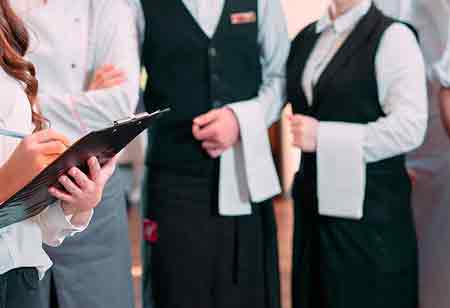Thank you for Subscribing to Hospitality Business Review Weekly Brief
The Role of CRM in Shaping Restaurant Loyalty Trends
The mobile and digital capabilities of modern CRMs further enhance customer engagement.

By
Hospitality Business Review | Wednesday, February 19, 2025
Stay ahead of the industry with exclusive feature stories on the top companies, expert insights and the latest news delivered straight to your inbox. Subscribe today.
Fremont, CA: The combination of restaurant and customer relationship management (CRM) tools has transformed how businesses attract, engage, and retain customers. By utilizing CRM systems, restaurants can enhance loyalty and increase sales through personalized customer experiences, data-driven marketing strategies, and improved operational efficiency. CRM provides the necessary tools to build stronger connections with patrons, fostering a more profitable and customer-focused business in an industry where customer satisfaction and repeat business are essential for success. These tools enable restaurants to develop deeper customer relationships while also driving profitability.
Modern CRM systems collect and analyze customer data, including preferences, dining history, and spending habits. With this information, restaurants can tailor their offerings to meet individual needs. For instance, a CRM might track a regular customer's favorite dishes or dietary restrictions, enabling the staff to recommend menu items or offer customized specials. CRM tools support targeted marketing campaigns that drive sales and repeat visits. By segmenting customers based on their behavior, restaurants can send tailored promotions, event invitations, or loyalty program updates directly to patrons.
A CRM might identify customers who frequently dine on weekends and send them exclusive weekend discounts. Personalized outreach increases the likelihood of customer engagement and motivates repeat business, ultimately boosting revenue. Loyalty programs integrated with CRM systems further enhance customer retention. CRM tools automatically track and manage loyalty points, simplifying the process for customers and staff. They allow restaurants to identify high-value customers and offer them VIP experiences, such as early access to new menu items or personalized thank-you messages, further strengthening their connection to the brand.
Operational efficiency is another benefit of using CRM in restaurant management. These systems streamline communication between the front-of-house and back-of-house teams by providing centralized customer data. For example, servers can access information about a reservation's preferences or special requests directly from the CRM, ensuring smooth service and eliminating errors. Mobile apps or online portals connected to the CRM allow customers to seamlessly make reservations, order food, or access loyalty rewards. The convenient features attract tech-savvy diners and increase the frequency of interactions between the customer and the restaurant, reinforcing brand loyalty.







